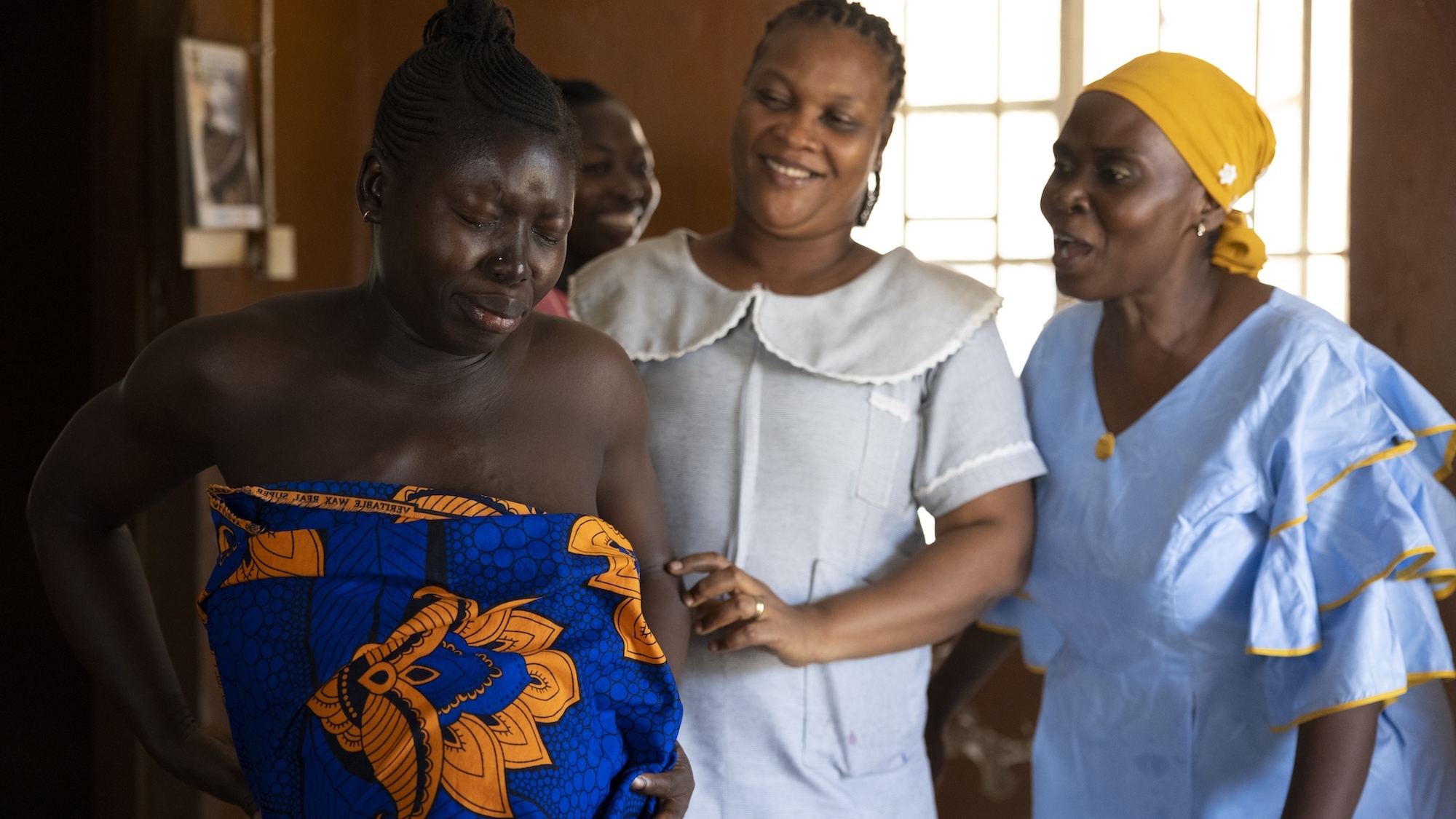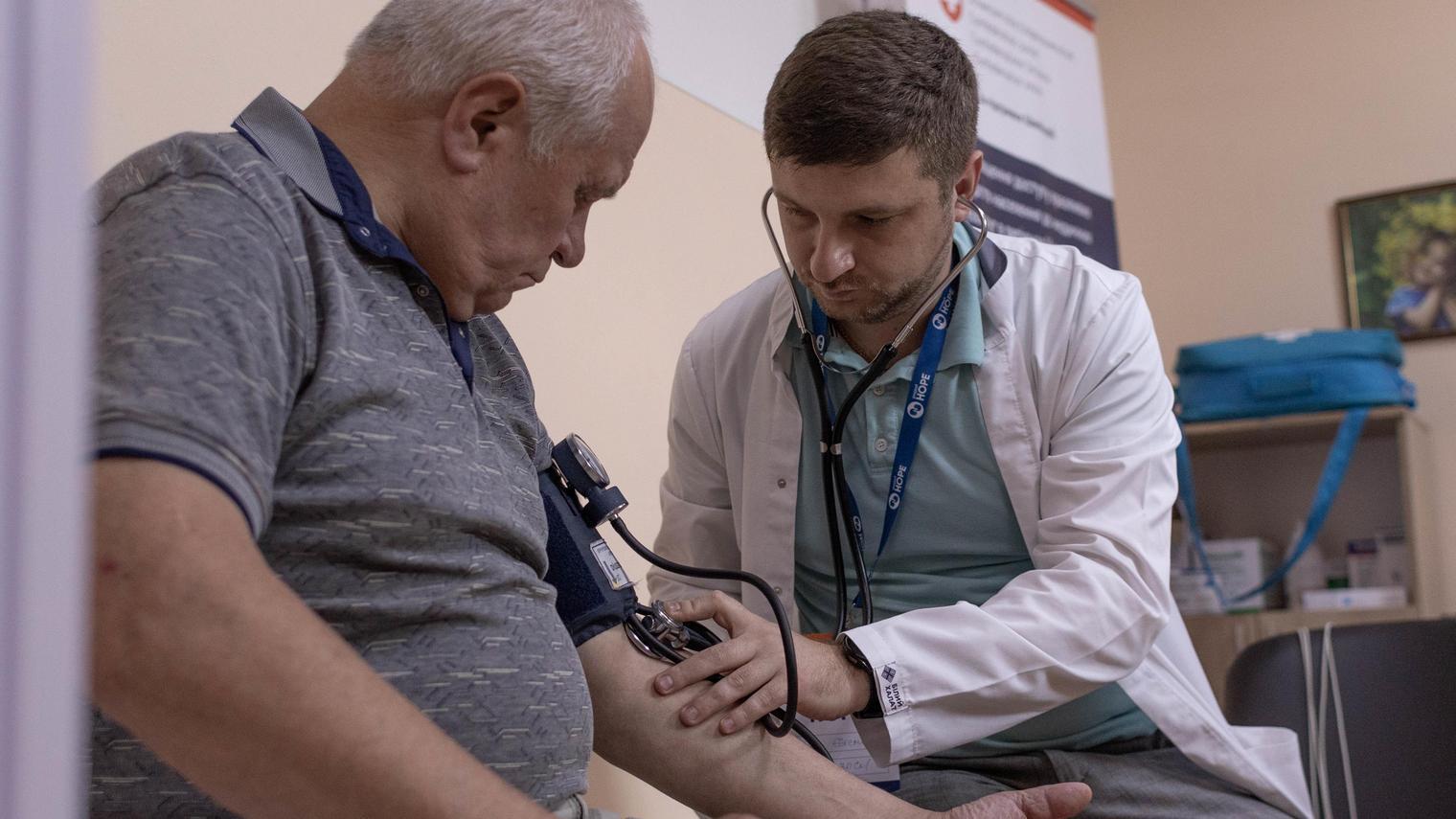Meet the Women Expanding Equal Access to Health Care Around the World
For International Women’s Day, we’re spotlighting some of the incredible team members, partners, and community members advancing women’s health care around the world.

International Women’s Day is a chance to celebrate the accomplishments of the women we work for and beside — and to ignite greater and sustained action toward ensuring every woman, everywhere, has equal access to quality health care.
This year, we’re highlighting a few of the many indomitable women behind Project HOPE, and how they are advancing equality and inspiring inclusion in the communities where they work.
Dr. Maram, Gaza
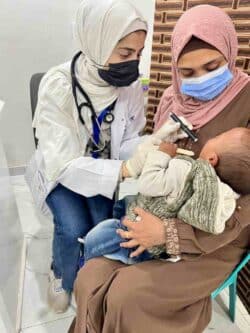
Dr. Maram is part of the team of local health care workers working at Project HOPE’s primary health clinic in Deir al Balah, Gaza, where tens of thousands of people have died and 85% of Gaza’s population has been displaced since Israel declared war on the Hamas militant group. As of January 2024, Gaza no longer has any fully functional hospitals.
Project HOPE’s clinic has treated thousands of patients since it opened in December 2023. Before the crisis, Dr. Maram was working at the gynecological unit of Al-Awda Hospital, providing antenatal care for pregnant women. Once she was displaced and unable to reach the hospital, she started volunteering in the emergency department of Shuhada al-Aqsa Hospital in Deir Al Balah, determined to continue to help women and children.
“The hardest part is that I’m displaced too,” Dr. Maram says. “So I’m struggling to get a safe place, good food, and warm clothes while I’m counting on my job. The hardest part is helping people at the same time that you and your family need the help.”
Olga, Poland

Olga is a Ukrainian refugee from Lviv. While displaced from her home in Ukraine, she began working as a psychologist at the Center for Psychophysical Development TUTU, which Project HOPE established in Rzeszów, Poland.
Poland has taken in more than 950,000 refugees since the war in Ukraine first began — the vast majority of whom are women or children. In partnership with our local partner, PSAR, Project HOPE helped establish the TUTU Center to provide a safe space for refugees, mostly women and children, as they grapple with uncertainty.
Olga and her two children left home with nothing but a bag of documents, some money, and a change of clothes. Her husband serves in the Ukrainian military. At TUTU, Olga leads five therapy sessions a day, helping other Ukrainians cope with the mental health challenges of the war.
“I’ve met a large amount of people, and moving around the city I see a lot of people I’ve helped,” Olga says. “I’m very happy to have brought that much joy to other families and children.”
Irina, Moldova
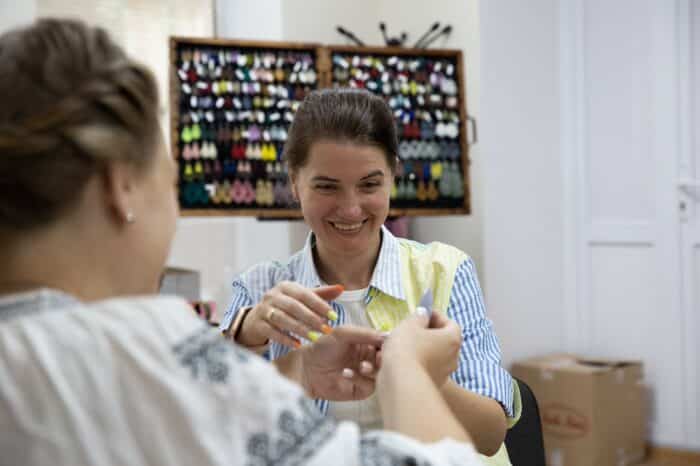
Irina fled her home in Odesa in the early days of the war in Ukraine, with only enough time to grab her dog and a backpack.
In Chişinău, Moldova, she has found solace and community at Casa Marioarei (The Association Against Domestic Violence), one of several local partners we support as part of our regional refugee response.
Casa Marioarei provides group therapy sessions and organizes social activities to improve integration between Ukrainians and Moldovans. The center also provides trainings on conflict de-escalation, gender-based violence prevention, and job skills to help Ukrainian refugees access the job market. Irina has learned stitchwork jewelry and is now teaching other refugees, who sell the jewelry to earn an income.
“We’ll get through this,” Irina says. “We’re tough and we’ll get through it. You can see it in the people here. We are here because it gets us out of depression. We’re tough and we’ll get through. We are invincible.”
Dr. Necessaire, Haiti
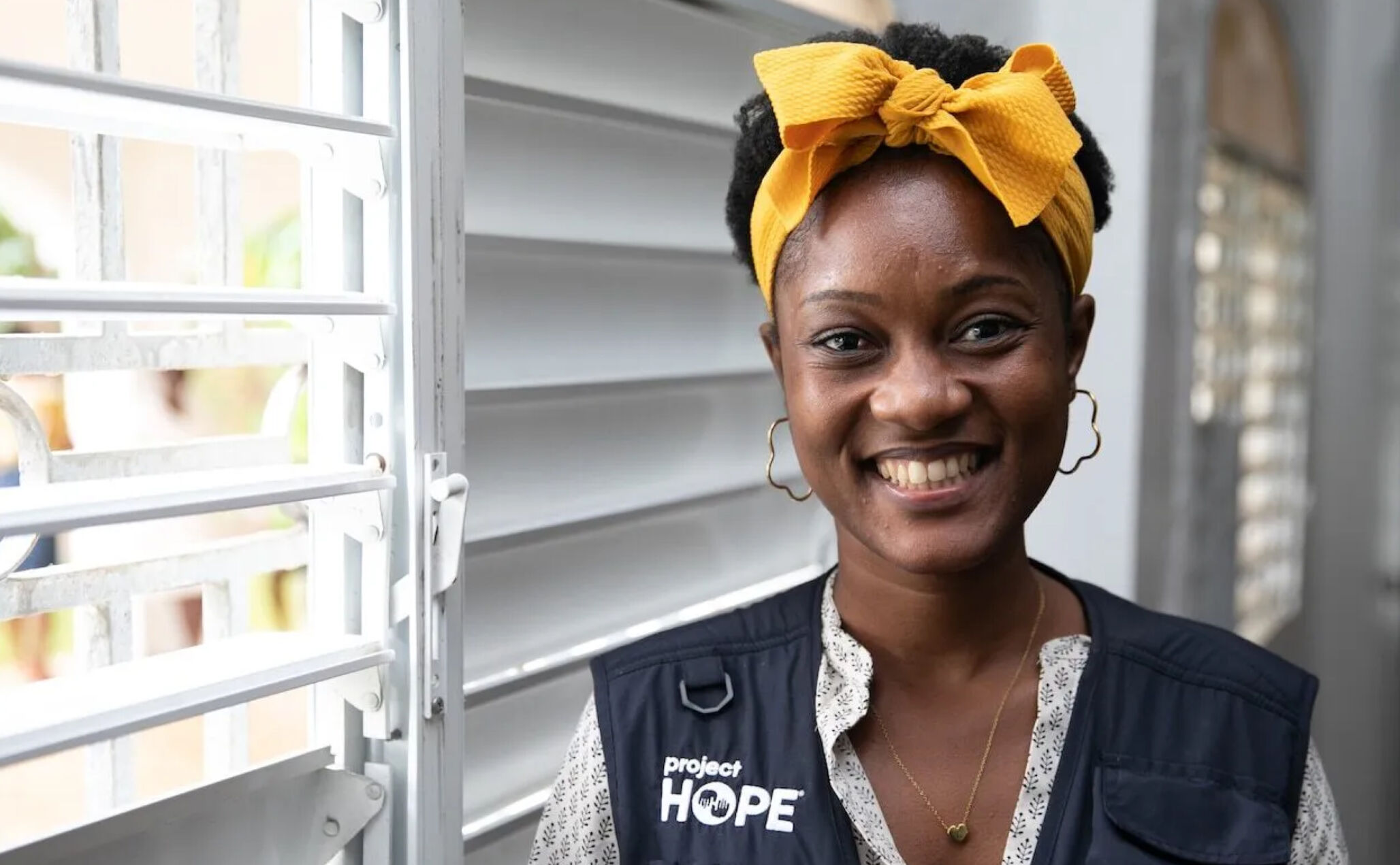
Dr. Regine Necessaire is Project HOPE’s site lead for the Grand’Anse department in southern Haiti, where a complex and worsening humanitarian crisis has taken a serious toll on health.
When the Grand’Anse region started seeing an increase in cholera cases early last year, Dr. Necessaire was brought on to help organize Project HOPE’s response, which included equipping health clinics with appropriate water, sanitation, and hygiene (WASH) supplies, distributing hygiene kits, renovating water points, and training community health agents.
“As a doctor, it is my first duty to respond, but as a member of this community, it was personal,” Dr. Necessaire says. “I want my work to not only be about helping people but also empowering my country — to improve the health care system overall. At Project HOPE, I am able to do both.”
Dr. Mejía, Dominican Republic
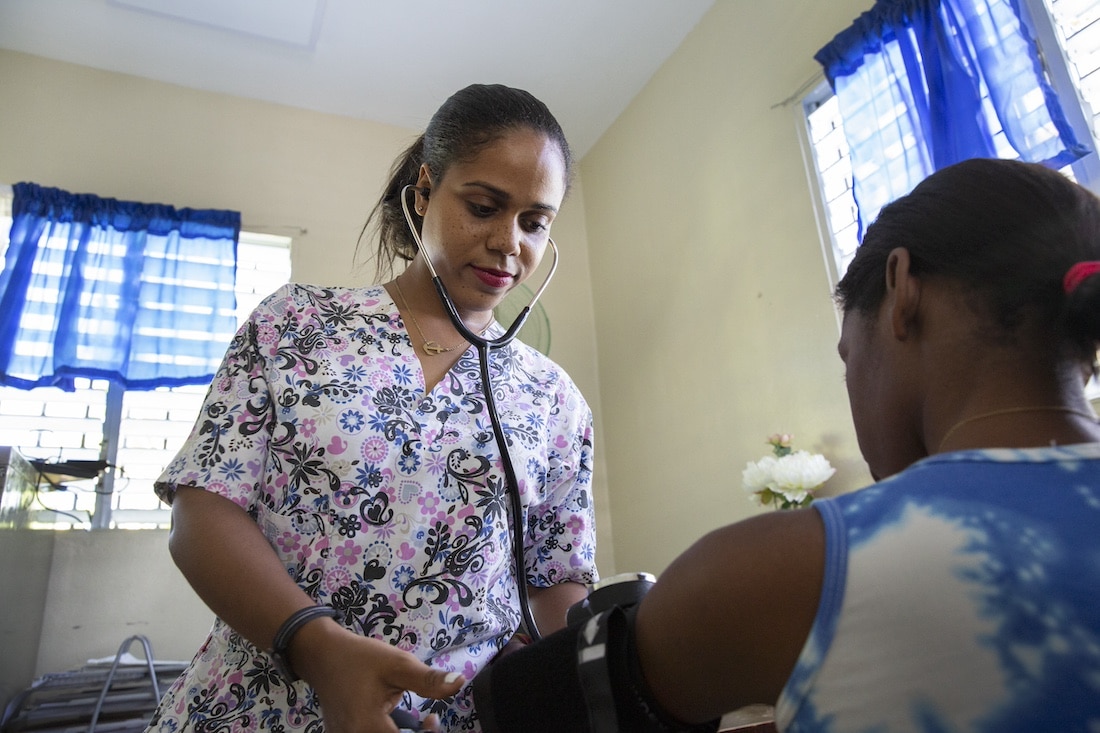
Dr. Vanessa Mejía has aspired to be a doctor since she was a young girl. She remembers seeing doctors helping people at the hospital in Santo Domingo, and knew from that point on that she’d study to be a doctor — so that she could wear a white coat too.
Today Dr. Mejía works at Sabaneta, a rural health clinic supported by Project HOPE, serving some of the poorest and most marginalized communities of the La Vega province. Lack of health education and information is one of the greatest barriers to good health in the Dominican Republic, and the country has some of the worst maternal and neonatal mortality rates in Latin America.
Dr. Mejía and her team provide regular training on breastfeeding and family planning to help improve health outcomes for women and children. The clinic also offers OBGYN and pediatric consults once a week, thanks to Project HOPE.
“Thanks to the information [we provide] and the follow up we do here with pregnant women, mortality rates are declining,” Dr. Mejía says. “Our efforts are really making a difference. Our goal, my goal, is the same as Project HOPE’s: to help people. That is what I love — to help people and see the progress of my patients.”
Yenoh, Sierra Leone
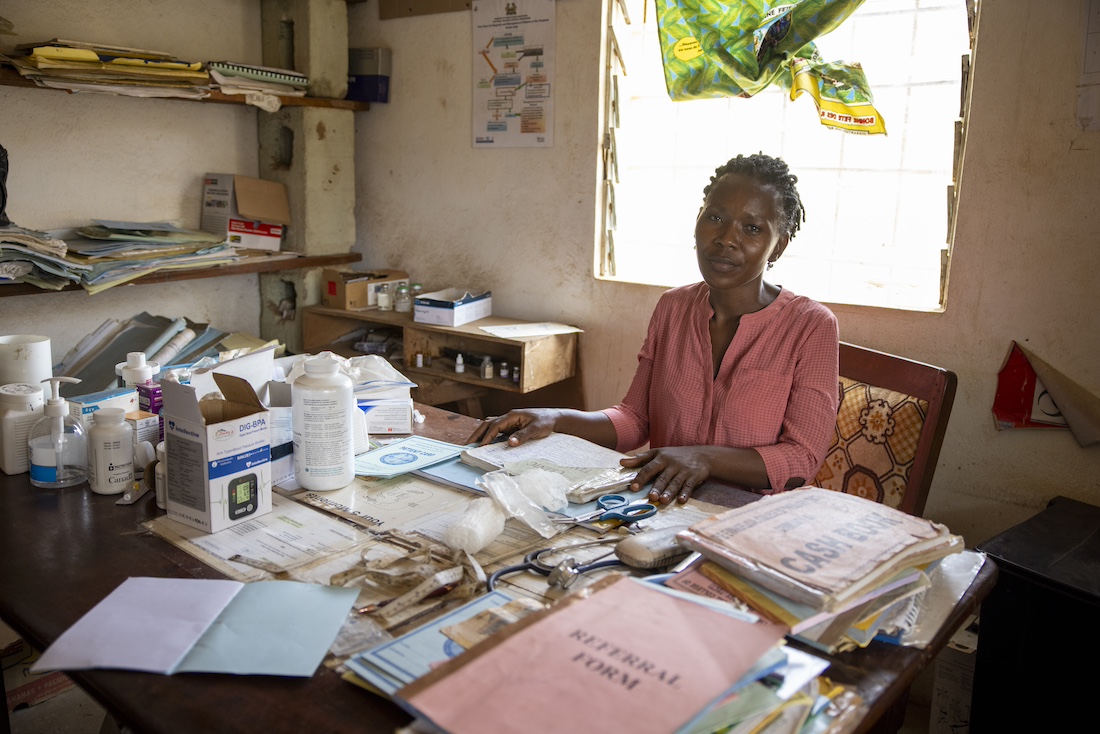
Yenoh is a midwife at a rural clinic in Jui, a small community in Sierra Leone. It’s not uncommon for midwives at the clinic to deliver 40 or more babies a month — a challenge compounded by severe shortages of medicines and medical equipment, including oxytocin to stop maternal bleeding.
Sierra Leone has one of the world’s highest rates of maternal and neonatal mortality. But Yenoh and the other midwives at her clinic are committed to changing that narrative. In January 2024, one of the clinic’s midwives attended a Project HOPE Helping Babies Breathe training to learn the skills needed to resuscitate babies born with asphyxia. Now she can pass those skills on to Yenoh and the other midwives to save more lives.
“I like saving lives,” Yenoh says. “I like the job very, very much. Especially the deliveries. Everyday practice and everyday improvement are important. When you do things with your hands, you can remember fast.”
Karen, Colombia

Karen is a Project HOPE nurse who works at a health clinic near the Colombia-Venezuela border. All of her patients are Venezuelan, and most of them pregnant women.
Since 2015, a spiraling crisis in Venezuela has rendered health care either unaffordable, insufficient, or nonexistent, and thousands of people continue to journey across the border to Colombia seeking urgent care.
Karen has been working at the clinic for two years, building trust with patients, making sure they’re comfortable, and providing the health services they have gone too long without. Run by the Jorge Criso Sahium Hospital, the clinic focuses on maternal and prenatal care.
“The main reason people are crossing the border is they don’t have enough money to pay for hospitalizations, medications, or pregnancies,” Karen says. “Women have to pay 300,000 pesos to have a baby. It’s very important that they receive all the medication and treatment here for free.”
Svitlana, Ukraine
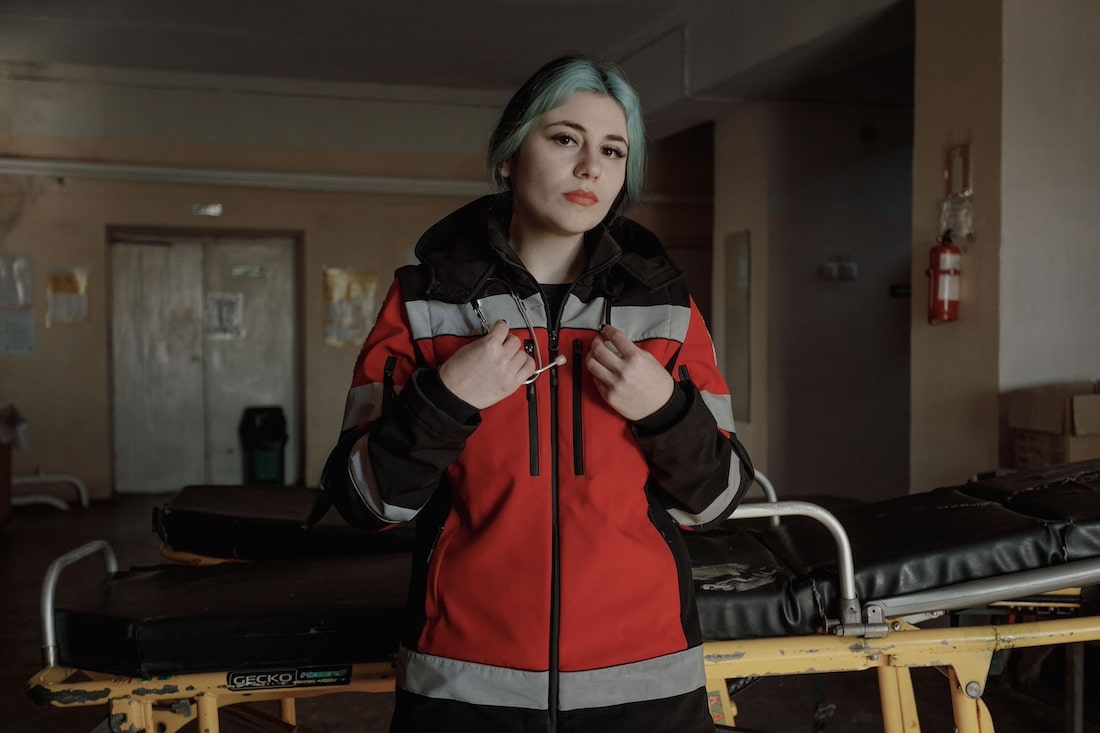
Svitlana is a paramedic from Kharkiv, working near the front lines of the war in Ukraine, where local health systems have been devastated.
Over 1,200 health facilities have been attacked since Russia’s full-scale invasion began two years ago. Thousands of civilians have been killed, millions have been displaced, and the devastation continues for millions more.
Svitlana and her team work on an ambulance provided by Project HOPE with the support of USAID, transporting ill and wounded patients to the closest available urgent care. The emergency medical team consists of a driver, a doctor, and a nurse. A typical workday lasts 24 hours — sometimes longer. But Svitlana remains steadfast and committed to the task: “saving people’s lives so that they can return home to their families.”
“This is my favorite car so far. I am responsible for it. The calls are difficult, the roads are bumpy, the circumstances are dangerous,” she says. “[But] I am very proud that I am not sitting at home and can help instead. I can be there quickly and in the right place and time.”
Hiwot, Ethiopia
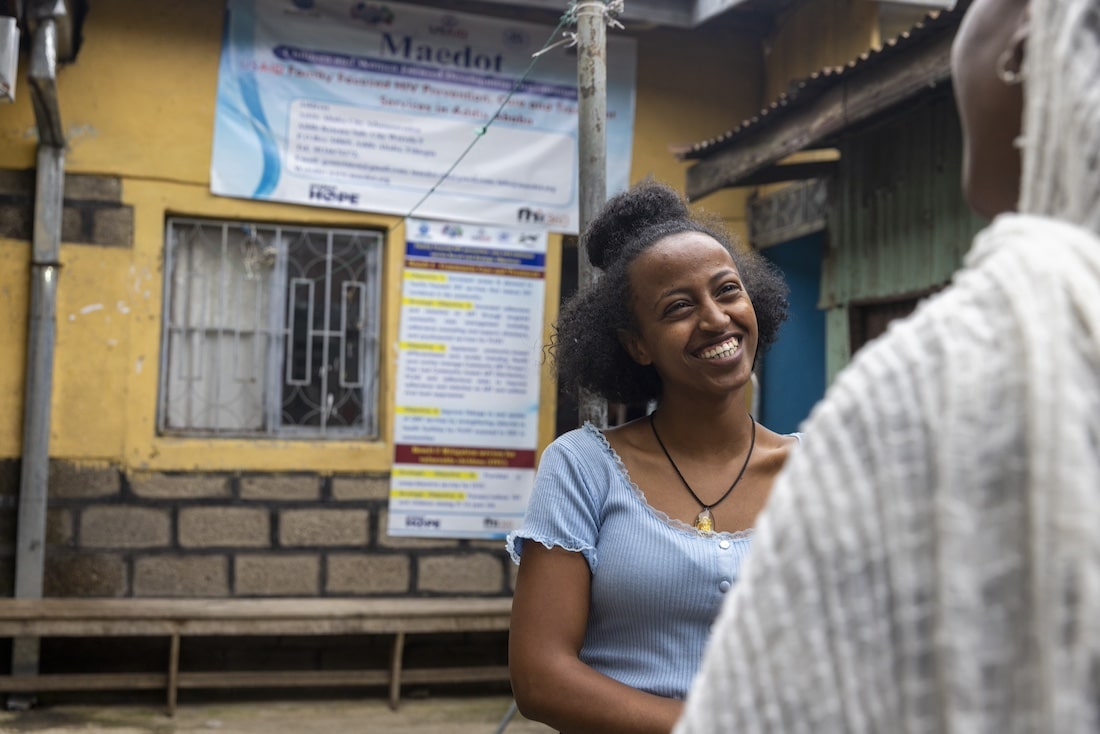
Hiwot is a community health worker from Addis Ababa, Ethiopia. Under our PEPFAR/USAID-funded Community HIV Care & Treatment project, she works to expand access to comprehensive HIV prevention, care, and treatment services for her fellow community members through one of our local partners, Maedot.
Despite progress in controlling the HIV epidemic in Ethiopia, prevalence remains high in urban areas and women are disproportionally affected. There’s a social stigma surrounding the virus as well. It was because of that stigma that Kalkidan, a mother of three, stopped adhering to treatment. But she restarted thanks to steady encouragement from Hiwot, who tried reaching her via phone (without success) but one day bumped into her on the street.
“I don’t think I would be OK and healthy now if I didn’t get this support,” Kalkidan says. “I think I would have lost hope to the extent that I would not want to see my children again. I would have left them, I would not be mentally healthy, let alone physically. I thank [Hiwot]. If it was not for her I wouldn’t be here.”

